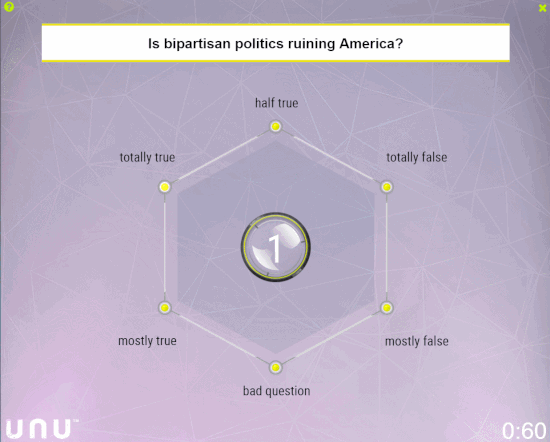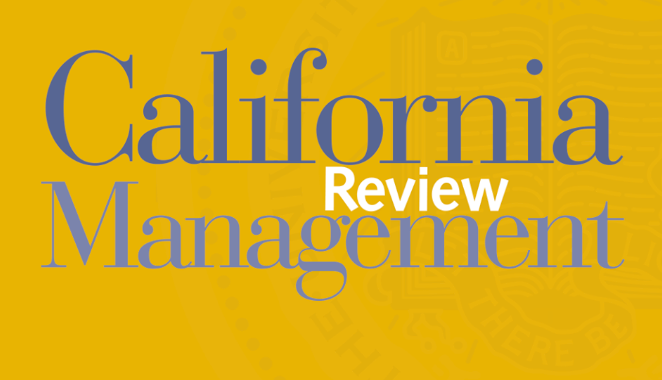Last night George W. Bush and Bill Clinton addressed the graduating class of the Presidential Leadership Scholars program together in Bush’s presidential library. The amiable conversation between the former Republic and Democratic presidents seemed to be a different era entirely than the current political climate, as both men stressed the importance of bipartisanship and humility.
Clinton took the notion of bipartisan government a step further, noting that working together with your political opponents is not just a form of graciousness, but rather a requirement for good decision-making. Describing the gridlock formed by separation into “like-minded communities” that can plague democracies, Clinton noted, “in an interdependent and complex world, diverse groups make better decisions than homogeneous ones. Everyone knows that, but they almost can’t help themselves. They vote for the gridlock they hate.”
Clinton’s comments struck a chord here at Unanimous A.I. because we spent a lot of our time thinking about the composition of our swarms. To paraphrase the law of the jungle, “the strength of the hive is in the bee, and the strength of the bee is the hive.” In other words, healthy, high-performing hives require their individual bees to go out into the world as scouts and to bring back diverse sets of information that Swarm Intelligence can then help optimize. A hive composed only of bees with a single shared opinion would soon fail.
What’s true for the hive is also true for institutions as complex as the U.S. Navy, as an article by in the U.S. Naval Institute’s Proceedings magazine makes clear. Months before Clinton’s comment, Lt. Owen Brooks’s article “Good Ideas Have No Rank” expressed the exact same sentiment, writing, “diversity enhances the quality of decisions” and recommending the use of our Swarm AI platform to capture opinions from across the organization. According to Lt. Brooks, swarming has the potential to “revolutionize” operational planning by “bringing different perspectives together.”

Research dating back to the earliest days of Unanimous A.I. supports this notion. In a paper published in by MIT press, “Human Swarms: A Real-Time Method for Collective Intelligence,” Dr. Rosenberg showed that groups with widely varying opinions and information sets were able to significantly increase accuracy compared to individual performance in a prediction challenge. Dr. Rosenberg writes, “each participant in a swarm is not expressing a singular view, but is continually assessing his own personal conviction across the range of possible options, weighing his confidence and preference in real-time. With all participants doing this in synchrony, the swarm quickly converges on solutions that seem to maximize the collective confidence and preference of the full group. We believe this is why swarms are able so efficiently capture the group’s wisdom.”
So, if you’re part of a group that needs to make important decisions to solve complicated problems, our research recommends you do two things. First, as Clinton notes, you should find people who disagree with you to help you make the decision. And then, as Lt. Brooks suggests, you should gather that group into a Swarm AI to ensure that your group optimizes its wisdom, intelligence and intuition by thinking together.
Every week Unanimous A. I. brings together swarms of regular people just like you to help us predict sporting events, investment opportunities, and technology as well as provide insight into everything from pop culture to politics. If you’d like information on joining a swarm – or just want to stay up to date on the latest predictions – click the button below.

